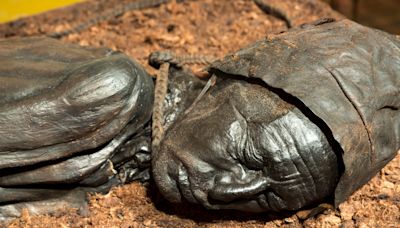Search results
People also ask
Who were the rulers of ancient Greece?
Who was the most lenient ruler of ancient Greece?
Who ruled the classical period in ancient Greece?
Who was the leader of the Hellenistic era?
List of Rulers of the Ancient Greek World. The following abridged list of rulers for the ancient Greek world is primarily for the rulers of the Hellenistic age (323–31 B.C.), after the time of Alexander the Great. In the preceding centuries, the dominant geopolitical unit was the polis or city-state. Greek city-states were governed by a ...
Jun 21, 2023 · The earliest rulers of Ancient Greece were the kings, also known as monarchs. These monarchs ruled during the Monarchy period, which lasted from around 2000 BCE to 800 BCE. The kings held absolute power and were considered to be divine beings.
- Leslie Robbins
- Overview
- The post-Mycenaean period and Lefkandi
- Colonization and city-state formation
No, ancient Greece was a civilization. The Greeks had cultural traits, a religion, and a language in common, though they spoke many dialects. The basic political unit was the city-state. Conflict between city-states was common, but they were capable of banding together against a common enemy, as they did during the Persian Wars (492–449 BCE). Powerful city-states such as Athens and Sparta exerted influence beyond their borders but never controlled the entire Greek-speaking world.
Where was ancient Greece located?
Ancient Greek civilization was concentrated in what is today Greece and along the western coast of Turkey. However, ancient Greek colonists established cities all around the Mediterranean and along the coast of the Black Sea.
Was ancient Greece a democracy?
Each ancient Greek city-state had its own government. Common forms of government included tyranny and oligarchy. In 507 BCE, under the leadership of Cleisthenes, the citizens of Athens began to develop a system of popular rule that they called democracy, which would last nearly two centuries. In their governing body, the Assembly (Ecclesia), all adult male citizens, perhaps 10 to 15 percent of the total population, were eligible to vote.
When did ancient Greece start and end?
The period between the catastrophic end of the Mycenaean civilization and about 900 bce is often called a Dark Age. It was a time about which Greeks of the Classical age had confused and actually false notions. Thucydides, the great ancient historian of the 5th century bce, wrote a sketch of Greek history from the Trojan War to his own day, in which he notoriously fails, in the appropriate chapter, to signal any kind of dramatic rupture. (He does, however, speak of Greece “settling down gradually” and colonizing Italy, Sicily, and what is now western Turkey. This surely implies that Greece was settling down after something.) Thucydides does indeed display sound knowledge of the series of migrations by which Greece was resettled in the post-Mycenaean period. The most famous of these was the “Dorian invasion,” which the Greeks called, or connected with, the legendary “return of the descendants of Heracles.” Although much about that invasion is problematic—it left little or no archaeological trace at the point in time where tradition puts it—the problems are of no concern here. Important for the understanding of the Archaic and Classical periods, however, is the powerful belief in Dorianism as a linguistic and religious concept. Thucydides casually but significantly mentions soldiers speaking the “Doric dialect” in a narrative about ordinary military matters in the year 426. That is a surprisingly abstract way of looking at the subdivisions of the Greeks, because it would have been more natural for a 5th-century Greek to identify soldiers by home cities. Equally important to the understanding of this period is the hostility to Dorians, usually on the part of Ionians, another linguistic and religious subgroup, whose most-famous city was Athens. So extreme was this hostility that Dorians were prohibited from entering Ionian sanctuaries; extant today is a 5th-century example of such a prohibition, an inscription from the island of Paros.
Phenomena such as the tension between Dorians and Ionians that have their origins in the Dark Age are a reminder that Greek civilization did not emerge either unannounced or uncontaminated by what had gone before. The Dark Age itself is beyond the scope of this article. One is bound to notice, however, that archaeological finds tend to call into question the whole concept of a Dark Age by showing that certain features of Greek civilization once thought not to antedate about 800 bce can actually be pushed back by as much as two centuries. One example, chosen for its relevance to the emergence of the Greek city-state, or polis, will suffice. In 1981 archaeology pulled back the curtain on the “darkest” phase of all, the Protogeometric Period (c. 1075–900 bce), which takes its name from the geometric shapes painted on pottery. A grave, rich by the standards of any period, was uncovered at a site called Lefkandi on Euboea, the island along the eastern flank of Attica (the territory controlled by Athens). The grave, which dates to about 1000 bce, contains the (probably cremated) remains of a man and a woman. The large bronze vessel in which the man’s ashes were deposited came from Cyprus, and the gold items buried with the woman are splendid and sophisticated in their workmanship. Remains of horses were found as well; the animals had been buried with their snaffle bits. The grave was within a large collapsed house, whose form anticipates that of the Greek temples two centuries later. Previously it had been thought that those temples were one of the first manifestations of the “monumentalizing” associated with the beginnings of the city-state. Thus, that find and those made in a set of nearby cemeteries in the years before 1980 attesting further contacts between Egypt and Cyprus between 1000 and 800 bce are important evidence. They show that one corner of one island of Greece, at least, was neither impoverished nor isolated in a period usually thought to have been both. The difficulty is to know just how exceptional Lefkandi was, but in any view it has revised former ideas about what was and what was not possible at the beginning of the 1st millennium bce.
The term colonization, although it may be convenient and widely used, is misleading. When applied to Archaic Greece, it should not necessarily be taken to imply the state-sponsored sending out of definite numbers of settlers, as the later Roman origin of the word implies. For one thing, it will be seen that state formation may itself be a product of the colonizing movement.
Britannica Quiz
- Simon Hornblower
- Alexander the Great (356 BC–323 BC) Alexander the Great is famous for being one of the greatest military generals the world has ever seen. He was the son of Philip II, the king of Macedonia.
- Pericles (494 BC-429 BC) Pericles was a renowned Greek statesman. He was born in Athens and lived from 495 to 429 BC. He was also an orator, politician, patron of the arts, and a renowned Athenian general.
- Leonidas, King of Sparta (540 BC-480 BC) Historians do not have a lot of information about this courageous king of Sparta, but during the war between Sparta and the Persians, he was no doubt the most courageous king Greece has ever seen.
- Solon (630 BC-560 BC) Solon was a poet, politician, and the founder of democratic government in Greece. He was born in 638 BC and died in 558 BC. Solon was a lawmaker who was the first to grant democratic rights to the common citizens of Athens.
Mar 20, 2018 · Oligarchy - rule by a select group of individuals. Tyranny - rule by an individual who had seized power by unconstitutional means. Our knowledge of the political systems in the ancient Greek world comes from a wide range of sources.
- Mark Cartwright
Ancient Greece ( Greek: Ἑλλάς, romanized : Hellás) was a northeastern Mediterranean civilization, existing from the Greek Dark Ages of the 12th–9th centuries BC to the end of classical antiquity ( c. 600 AD ), that comprised a loose collection of culturally and linguistically related city-states and other territories.
Jun 21, 2023 · June 21, 2023 by Danielle Hines. Ancient Greece is well-known for its powerful rulers who played a significant role in shaping the nation’s history. The Greeks believed that their rulers were divine, and they were considered the ultimate authority in the land. Let us take a closer look at who was the ruler in ancient Greece. Monarchy.




